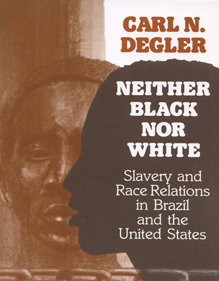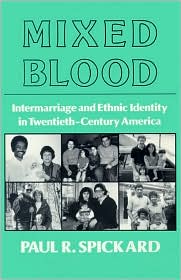Blacks and Whites in São Paulo, Brazil 1888–1988
University of Wisconsin Press
November 1991
376 pages
6 x 9; 1 map
Paper ISBN: 978-0-299-13104-3
George Reid Andrews, Distinguished Professor of History
University of Pittsburgh

Winner of the 1993 Arthur P. Whitaker Prize
For much of the twentieth century Brazil enjoyed an international reputation as a “racial democracy,” but that image has been largely undermined in recent decades by research suggesting the existence of widespread racial inequality. George Reid Andrews provides the first thoroughly documented history of Brazilian racial inequality from the abolition of slavery in 1888 up to the late 1980s, showing how economic, social, and political changes in Brazil during the last one hundred years have shaped race relations.
No laws of segregation or apartheid exist in Brazil, but by looking carefully at government policies, data on employment, mainstream and Afro-Brazilian newspapers, and a variety of other sources, Andrews traces pervasive discrimination against Afro-Brazilians over time. He draws his evidence from the country’s largest and most economically important state, São Paulo, showing how race relations were affected by its transformation from a plantation-based economy to South America’s most urban, industrialized society.
The book focuses first on Afro-Brazilians’ entry into the agricultural and urban working class after the abolition of slavery. This transition, Andrews argues, was seriously hampered by state policies giving the many European immigrants of the period preference over black workers. As immigration declined and these policies were overturned in the late 1920s, black laborers began to be employed in agriculture and industry on nearly equal terms with whites. Andrews then surveys efforts of blacks to move into the middle class during the 1900s. He finds that informal racial solidarity among middle-class whites has tended to exclude Afro-Brazilians from the professions and other white-collar jobs.
Andrews traces how discrimination throughout the century led Afro-Brazilians to mobilize, first through the antislavery movement of the 1880s, then through such social and political organizations of the 1920s and 1930s as the Brazilian Black Front, and finally through the anti-racism movements of the 1970s and 1980s. These recent movements have provoked much debate among Brazilians over their national image as a racial democracy. It remains to be seen, Andrews concludes, whether that debate will result in increased opportunities for black Brazilians.
Contents
- Lists of Tables
- Acknowledgments
- Chapter 1. Introduction
- Part 1. Workers
- Chapter 2. Slavery and Emancipation, 1800-1890
- Chapter 3. Immigration, 1890-1930
- Chapter 4. Working, 1920-1960
- Part 2. The Middle Class
- Chapter 5. Living in a Racial Democracy, 1900-1940
- Chapter 6. Blacks Ascending, 1940-1988
- Chapter 7. Organizing, 1945-1988
- Part 3. Past, Present, Future
- Chapter 8. One Hundred Years of Freedom: May 13, 1988
- Chapter 9. Looking Back, Looking Forward
- Appendix A. Population of Sao Paulo State, 1800-1980
- Appendix B. Brazilian Racial Terminology
- Appendix C. Personnel Records at the Jafet and São Paulo Tramway, Light, and Power Companies
- Glossary
- Notes
- Selected Bibliography
- Index





